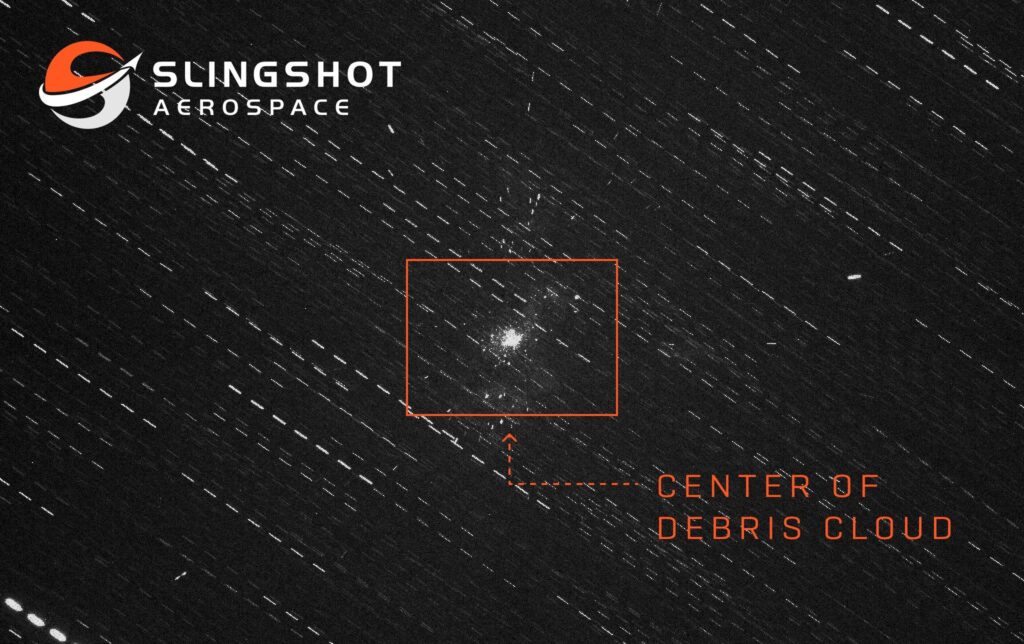The spent Centaur upper stage of the Atlas V rocket collapsed in space with the formation of a cloud of debris. This was reported by Slingshot Aerospace, a company engaged in tracking the situation in Earth orbit.

The Centaur upper stage in question has been in space since 2018. It was used to launch the GOES 18 weather satellite. Centaur successfully accomplished its mission. After separation, the satellite remained in a geo-transitional orbit with a perigee altitude of 7,634 km, an apogee altitude of 34,953 km and an inclination of 9.4°.
According to Slingshot Aerospace, the Centaur collapsed on September 6. The event generated at least 40 pieces of debris. It is reported that they pose no immediate threat to other spacecraft. It is currently unknown what led to the destruction of Centaur. Generally, the main sources of explosions in orbit are either fuel residue or batteries left inside the vehicle.
It is worth noting that this incident was the fourth case of Centaur upper stage destruction since 2018. This raised legitimate questions about flaws in its design or that the unit wasn’t passivated by venting the remaining fuel and discharging the batteries. In response, Tory Bruno, chief executive of launch operator ULA, responsible for Centaur’s manufacture and launches, said the company conducted mandatory passivation of all its stages.
Given its high altitude, the debris from the Centaur explosion will remain in space for many thousands of years. This incident, as well as the recent destruction of a Chinese Long March-6A rocket stage, has once again reminded us of the threat that upper stages pose to the sustainability of space. In response to these concerns, the U.S. Federal Aviation Administration released draft regulations nearly a year ago on the disposal of spent stages. It requires launch operators to dispose of them in one of five ways, from reentry into the atmosphere to on-orbit disposal. However, these regulations have not yet been approved.
Earlier, we told you about Japanese company Astroscale’s plans to deorbit a spent rocket stage by 2029.
According to Spacenews


